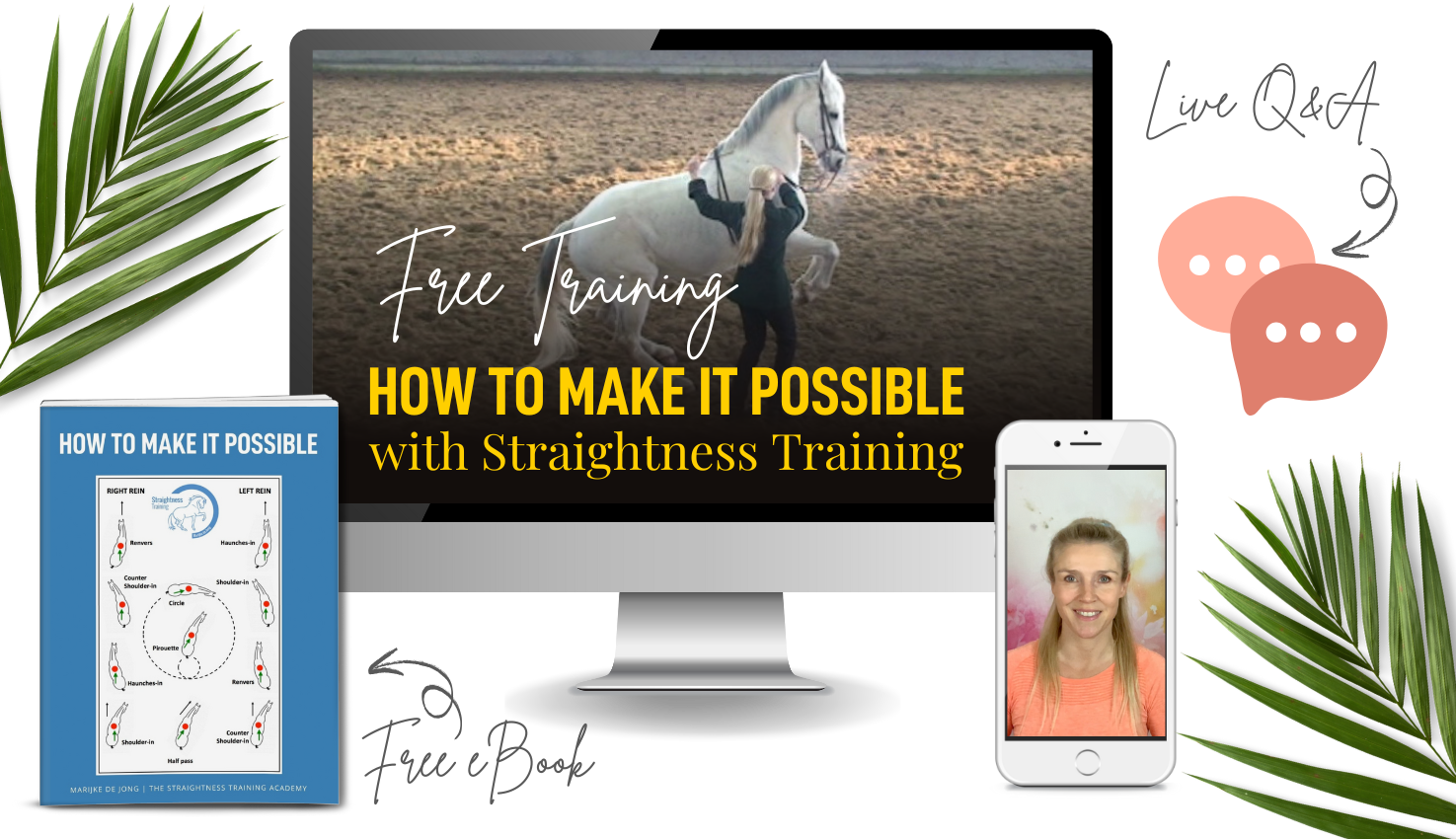
Empty Your Cup

Once upon a time, there was a wise Zen master.
People traveled from far away to seek his help.
In return, he would teach them and show them the way to enlightenment.
On this particular day, a scholar came to visit the Zen master for advice.
“I have come to ask you to teach me about Zen,” the scholar said.
Soon, it became obvious that the scholar was full of his own opinions and knowledge.
He interrupted the master repeatedly with his own stories and failed to listen to what the master had to say.
The master calmly suggested that they should have tea.
So the master poured his guest a cup.
The cup was filled, yet he kept pouring until the cup overflowed onto the table, onto the floor, and finally onto the scholar’s robes.
The scholar cried:
“Stop! The cup is full already. Can’t you see?”
“Exactly,” the Zen master replied with a smile.
“You are like this cup — so full of ideas that nothing more will fit in.
Come back to me with an empty cup.”
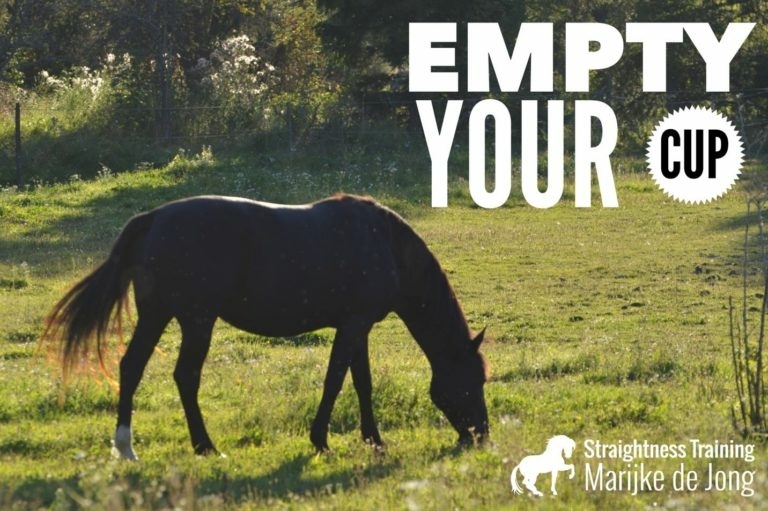
“I-Know-It-All” attitude
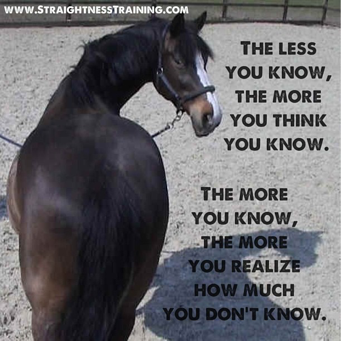
If we’re getting a little bit advanced, it’s easy to approach new things with an “I Know It All” attitude.
But remember Socrates, after speaking with a man who had a reputation for being a Know-It-All:
“I am better off than he is. For he knows nothing and thinks that he knows. I neither know nor think that I know.”
He realized, that beginning at a position of intellectual humility is the only method of seeking what the old grandmaster sought— with no guarantee of finding it.
But the more open minded we’ll stay when we revisit ‘old’ materials, the more chance that we will discover some interesting 2 mm that we forgot about, or that we see now in a completely new light.
Because that’s the spirit of an ST trainer:
We strive for Constant And Never-ending Improvement – also called CANI – realizing that important changes will not be caused by the BIG things, rather by tiny little details.
And to be able to CANI, you have to empty your cup.
So when studying, be courageous enough to enter the zone of not-knowing so you can discover the hidden details.
The “Yes, but” and “I’d rather” attitude
Here are a few situations that happens a lot in lessons:
The instructor points out something that has to improve, and the student explains:
- “Actually, this is because…..” and then there comes a story why the student cannot change things.
The instructor suggests to do something, and the student says:
- “I’d rather…”
Or the instructors wants to address a certain behavior, and the student replies:
- ” Well, at home, my horse is not doing this…”
Or the instructor gives a tip, and the students says:
- “Well, I already tried this, and I also did that…”
Or the instructor mentions cause and effect, and the students shares:
- “Oh.. I thought…”
Or the instructor is in the middle of explaining something, and the student interrupts:
- “Yes, but…”
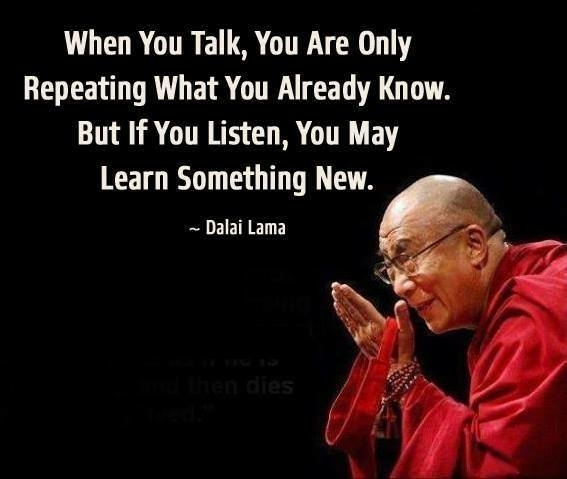
Or the instructor tries to give a clinic or a lecture, but the ‘”know-it-all’ in the audience wants to share his golden advice on any topic which comes across.
Because the “know-it-alls’ love to exhibit their knowledge even when they do not possess the required expertise, and are not on a level to discuss things with the instructor.
However, especially when we ask for help from an instructor, we might miss out on valuable insights when our cup is too full!!
So, it’s very simple:
- Quit the story why you can’t have / change things.
- Stop talking, start listening, so you may learn something new.
- You will get most out of a lesson or a clinic if you empty our cup first.
Swap Expectation for Appreciation
The Zen story is also a beautiful reminder that we need to stay open to new experiences when training our horse.
For example, when we’re doing the same exercises each time, of course, it’s really easy for it to feel quite as a routine.
And it’s very easy for it to lose a sort of its freshness.
Because we already know what’s going to happen.
So we start to expect.
We expect our horse:
- to behave
- to accept a saddle
- to stand quietly at the farrier
- to make specific movements when riding
- and much more…
The only problem with expectations is, that the expected, is perceived as “normal”.
So we start taking things for granted!
Now to avoid this, we have to empty our cup.
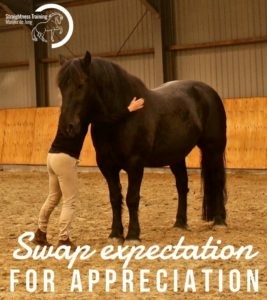
We have to swap expectation for appreciation!
Because then, we are much more open to whatever the horse offers to us.
Then, we keep doing the exercises as though it’s the very first time.
Not expecting.
Not anticipating.
Instead, appreciating.
Then, when our horse is doing fine, we are really happy about it!
We don’t take it for granted.
And when we do the exercises with an open mind, when approach it with a sense of curiosity and wonder, we make room for new beautiful things to unfold.
STart with a Beginner’s Mind
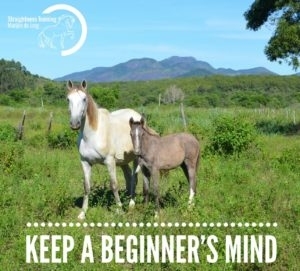
The Beginner’s Mind is an empty mind.
And that is especially important for professional riders who’d like to integrate ST in their work.
It’s like the cup of tea story:
First, we need to empty our mind of preconceptions before we attempt to understand ST.
If our mind is empty, it is always ready for anything; it is open to everything.
Keep A Curious Mind
The goal of practice ST is always to keep a Beginner’s Mind, no matter what level you are.
Suppose you practice the groundwork sequence with all its exercises only once.
It might be a very good performance.
But what would happen to you if you practice it twice, three times, four times, or more?
You might easily lose your original attitude towards it.
When we’re doing the same exercises, in the same order each time, of course, it’s really easy for it to feel quite as a routine.
And it’s very easy for it to lose a sort of its freshness.
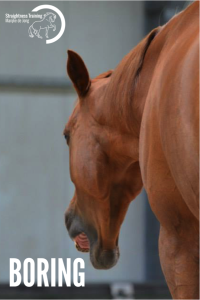
So it’s really important to maintain a Beginner’s Mind.
It’s when we’re doing the exercise as though it’s the very first time.
Not expecting.
Not anticipating.
When we do the exercises in this way, appreciation and excitement can naturally arise.
Keep An Innocent Mind

So the Beginner’s Mind is a very innocent mind.
Which such a mind it’s to be like the way young children interact with the world.
With a sense of curiosity and wonder.
And there’s a certain amount of delight inherent in that interest in the world.
Kids aren’t thinking about the outcome necessarily.
They simply enjoy exploring for its own sake.
And that’s very important when you’re getting stuck on a plateau.
Then you need to keep exploring to figure a way out.
Keep A Figuring Out State
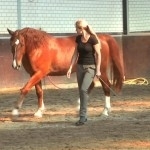
A Zen proverb says:
“In the Beginner’s Mind there are many possibilities, in the expert’s mind there are few.”
It’s the same with ST in general.
For a while, you will keep your Beginner’s Mind.
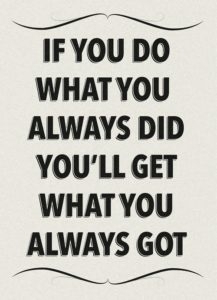
But if you continue to practice all pillars for one, two, three years or more, although you may improve some, you might lose the limitless space of your original Beginner’s Mind where everything was possible.
So you might lose get stuck on a plateau.
Because if you do what you always did, you’ll get what you always got.
So to breakthrough, we need to return to our original mind.
Where we have an attitude of openness, eagerness, and lack of preconceptions when training horses.
Just as a beginner has.
To avoid stagnation, it’s really important to keep this Beginner’s Mind.
Where we believe in your ability to figure things out.
Where our mind can open up to new possibilities.
And this is very important when we feel stuck on a plateau.
When there seems to be very little progress, and we stop enjoying the training sessions.
To get off this plateau, it helps if we return to our origional beginner’s mind.
When we open up our mind to all possibilities, without having any expectations, breakthroughs can naturally arise.
With an open, investigating mind, the hidden secrets to breakthrough will naturally unfold!
Links to Related and Recommended Topics
- What to Do when your Horse gets Bored? >>
- Experts Are Always Students First »
- The 3 Effective Roles of An Expert »
- 12 Tips For Being The Best Rider You Can Be »
- Empty your cup »
- Chase one rabbit at a time »
- The Lab Cycle »
- Be a Researcher In Your Lab »
- Being Squeezed like a Lemon »
- Hunger, heart, hard work beat talent »

